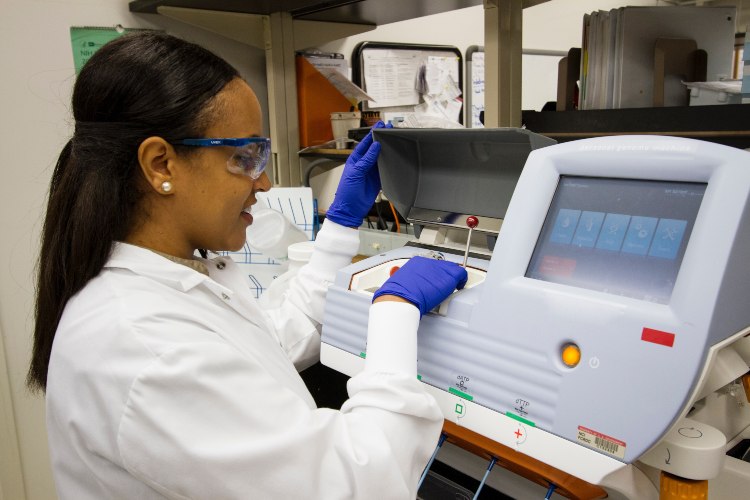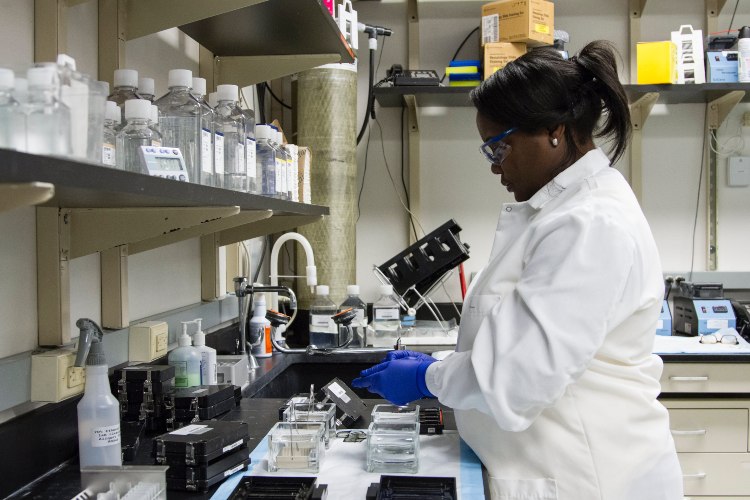The causes of mental illness vary, but recent advances surrounding genetic testing for mental health are transforming both diagnosis and treatment options.
Most mental illnesses are treated with a combination of therapies and medication. But not every patient responds similarly to prescribed medicine. Understanding genetic ties to mental illness can help patients get the best treatment possible.
Here, we’ll examine the role genetic testing plays in mental health treatment.
How Mental Illness is Diagnosed
Before we discuss the role genetic testing plays in diagnosing and treating mental illness, let’s first examine how diagnoses are generally made.
There is no diagnostic test for mental illness. Instead, the American Psychiatric Association provides a list of criteria for a mental illness known as the DSM-5.
The DSM-5 examines a patient’s behaviors, feelings, and symptoms over a certain period of time. Patients must meet certain criteria to be diagnosed with a mental illness.
The DSM-5 can help identify over 300 illnesses, including, but not limited to:
- Depression
- Autism
- Schizophrenia
- Eating disorders
- Personality disorder
- Learning disorders
- Addictive disorders
Diagnoses are only made after a patient has displayed symptoms for a certain period of time. Then, a treatment plan is created.
But what if genetic indicators could help predict an underlying mental illness? And, taking things one step further, help use a patient’s biology to prescribe the correct medication?
Let’s examine how it’s done.
How Genetic Testing for Mental Health Can Help
Most professionals use a combination of therapies and medication to treat mental illness. The problem is many patients don’t react properly to the first prescription. In some cases, it takes numerous attempts to find a medication that delivers the promised results.
This causes a long list of complications for the patient. Most notably, patients may experience an adverse reaction to multiple medications or a worsening condition when left untreated with ineffective methods.
In some cases, the answer involves using multiple medications together. Most patients don’t want to rely on one medication, let alone several. This also increases their risk of dependency, though rare.
Genetic testing can help determine how your body will react to a certain medication before you even take it. This type of testing covers several factors, including how your body metabolizes the drug, your body’s response to the treatment, and potential adverse effects.
This cuts down on the need to experiment with several drugs at once or fill your body with unnecessary ones. While genetic testing isn’t foolproof, the information it provides can help doctors make a more educated diagnosis and treatment plan.
Genetic Testing and Diagnosis
Speaking of diagnosis… before choosing a treatment plan, doctors must determine and diagnose your mental illness. Advances in genetic testing are proving helpful here, as well.
Knowing the genetic and physiologic foundation of specific mental disorders plays an integral role in how they’re classified and treated. Certain tests can help determine the patient’s risk of developing a particular disorder. This means early detection, more targeted therapy, and optimized medication dosing.
Medical professionals are still conducting research on the exact role genetic testing will play in mental health diagnosis and treatment. This type of genetic testing is currently being used in several specific scenarios.
Risk of Developing a Mental Disorder
Genetic testing allows doctors to make predictions about a patient’s risk of developing specific mental disorders. These include:
- OCD (obsessive-compulsive disorder)
- Bipolar disorder
- Schizophrenia and other psychotic disorders
- Depressive disorders
- Addictive disorders
By predetermining the risk for these mental illnesses, patients and doctors can work together to try and prevent the onset of symptoms. They can also strategize to create a treatment plan to keep symptoms under control or at bay.
Patient’s Response to Certain Medications
Once a diagnosis is made, genetic testing is then used to help predict and choose the best course of medication treatment.
Genetic testing can help predict how patients will metabolize and react to specific medications or a class of medications. Most often, a patient reacts to one or more ingredients.
These include, but aren’t limited to:
- Serotonin
- Serotonin/norepinephrine reuptake inhibitors (SSRIs)
- Typical and atypical antipsychotic agents
- Medications used to treat addiction
Knowledge of these reactions and interactions helps doctors prescribe effective treatment and avoid unnecessary experimentation.
Added Benefits of Genetic Testing
Early detection and more efficient treatment are two of the main benefits of genetic testing for mental health – but they’re not the only ones.
Let’s examine a few more ways that this breakthrough in technology is improving the patient experience.
Peace of Mind
No one wants to feel like a guinea pig. You have the right to be confident in your care and your doctor’s diagnosis and suggested treatment. Genetic testing offers both patients and professionals peace of mind.
Avoid taking countless unnecessary medications that may worsen your condition or create additional complications. Genetic testing takes the guesswork out of mental illness treatment, giving you confidence in the care you receive.
Individualized Care
Genetic testing allows healthcare professionals to make a determination based on your specific needs and biology. There’s no one-size-fits-all approach to treating a mental health illness.
The more information your doctor has about your specific biology and makeup, the more accurate the diagnosis. You’ll receive a treatment plan catered specifically to what your mind and body need and will respond best to.
Reduced Cost
Experimenting with medications quickly adds to mounting medical bills. Each time you’re prescribed a new medication, that means another visit to the doctor, more prescriptions to fill, and added costs.
Cut down on the cost of mental illness treatment by getting a proper diagnosis and prescription the first time. This also saves you time and frustration.
Genetic Testing is Transforming Mental Health Treatment
Knowledge is power. The more insight doctors and medical professionals have about your condition, the better they can diagnose and treat it.
Genetic testing for mental health means doctors get a deeper insight into potential risk factors for developing mental illness and which medications your body will react to best.
Are you or someone you know struggling with a mental illness? Learn more about our admissions process and how D’Amore Healthcare can start you on the path to healing today.







































